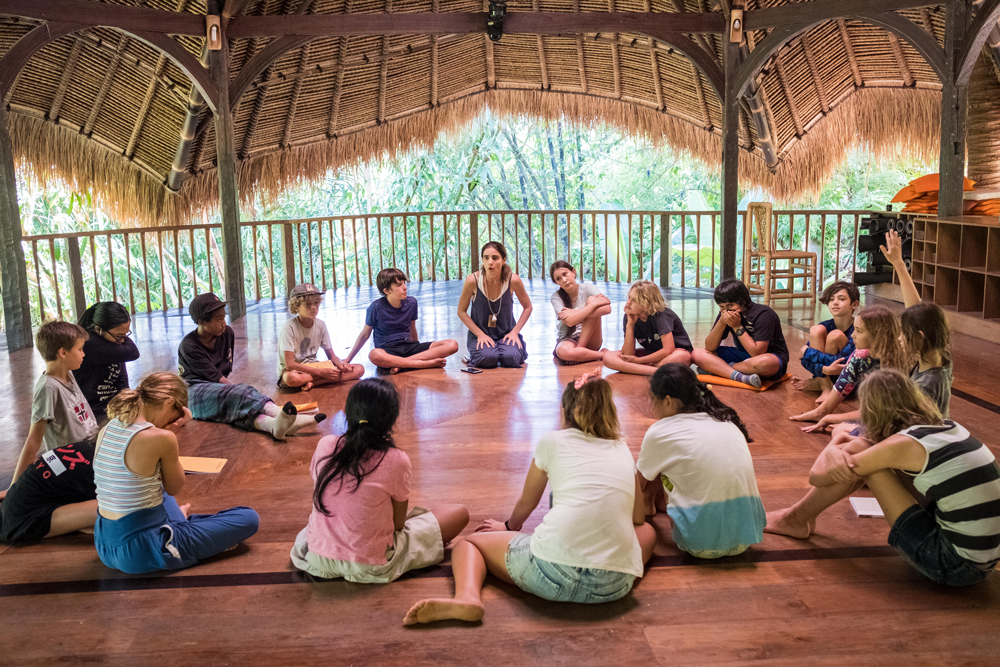It is awesome we have a day to shine light on Mental Health. I know many schools and organisations, including Green School Bali, will hold special programs on a day to learn and share together on this vitally important issue. But when we talk about an education revolution, a big part of the change we want to create in education is for student wellbeing to be a lens that helps us design the school experience of the future.
Students all around the world spend a huge chunk of their youth in school.
Rote learning pointless information, test-scores, uniforms, sit in rows shut inside a classroom, social-media, friendship challenges, an uncertain future, climate change, pollution, inequality, gender-bias, racial prejudice, advertising that tells you what to buy to be happy, tired and overworked teachers, body image, puberty, first love, hormones … the school bell rings … (phew!) – but then it’s time for homework.
I’m sorry, but you could think the current education model has been designed to create mental health issues for our youth, not address them.
What chance do they have?
Schools need to realise the potential life-long scarring from a system outdated and mismatched for our children – and a system that only helps address mental health issues after they arise, rather than trying to prevent them. Schools should be a part of the solution – not a big part of the problem.
Green School Bali is not a perfect school. The campus is rugged, the jungle is hot and sweaty, our learning program is always evolving – we are open to the challenges in the real world. Our students still have tests and quizzes. Our students still do some homework. But there is so much more to a school experience than standardised testing and pointless homework for the sake of homework. At Green School we want school to be fun, not depressing.
A foundation of our Green School pedagogy is building relationships; relationships with others, fostering ecophilia by building a relationship with nature, creating opportunities to connect learning with the real world. Building relationships within and around the individual is important for positive mental health.
We know that school needs to teach more than just knowledge acquisition and when we talk about educating for skills and values – creative thinking, collaboration, critical thinking, communication, empathy, community, peace, sustainability (as just a few examples) – we know that these skills and values help our learners build adaptability. Skills and values build resilience.
Projects that are born from student passions, the art and music, our mindfulness practices, our community celebrations, the genuine care of our educators, the animals on campus that are a part of the community, the sport we play together, the thematic learning that helps students connect learning to the real world, the beautiful bamboo classrooms, the all-surrounding gardens and jungle, our respectful connections with the beautiful Indonesian and Balinese people and culture … There is so much to the Green School experience that promotes healthy mindsets because we believe that’s what schools should do.
Let’s shine the light on Mental Health on October 10 – in schools, in the community and in our homes – let’s do a better job of supporting our young people through an increasingly complex youth, towards an increasingly challenging future. But let’s also remind ourselves, that mental health can’t be a once-a-year conversation, it can’t be something schools just ‘treat’; schools should be ‘proactive and preventative’ by having a central focus on it. Mental Health needs to be ‘the How, the What, and the Why’ of schools in the future.
Student wellbeing is THE key to a better world – it is crucially important to a sustainable future.

